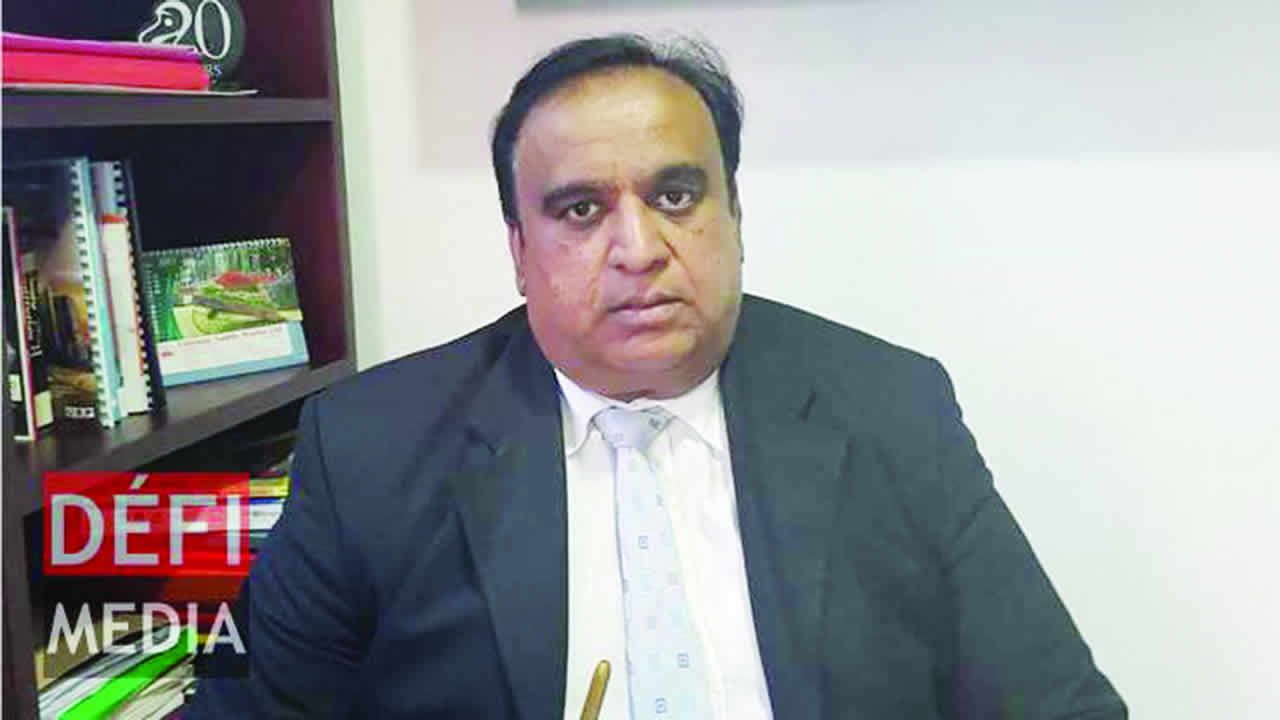
A constitution by definition is a Supreme legislation and a sacrosanct document and unlike ordinary legislations, it cannot be amended according to the whims and caprices of those in power or as per the wish of a minority or a simple majority.
Publicité
It is a package deal as rightly defined by the Indian Judges, which reflects a historical compromise at a given juncture of history. The fundamental principles, like separation of powers or rather juxtaposition of powers as qualified by Justice Glover, democracy and sovereignty cannot be tampered with.
The Supreme Court of India qualified some sections, the basic features of the Indian Constitution, as inalienable which cannot be amended at all. The American constitution is also amendable by a very complex and heavy mechanism.
Our constitution cannot be amended by simple majority, but by a qualified majority. Our constitution is a real masterpiece drafted by a far-sighted leading constitutional lawyer, Prof De Smith, with the input of people like Sir Seewoosagur Ramgoolam, Sokdeo Bissoondoyal, Razack Mohamed etc and the dissenting opinions of people like Sir Gaetan Duval and Jules Koenig etc has guaranteed, peace and law and order, and relative good governance and a profound respect for human rights including constitutional guarantees for non-discrimination.
Some people take the achievement in terms of peaceful coexistence and peace and political stability for granted, but nothing falls from the sky. The constitution, along with a philosophy of consensus among politicians and opinion leaders have enabled us to demarcate from many African countries, where ethnic violence, chaos, unprecedented corruption, breach of human rights are rife. We face some of the same problems, but not of the same magnitude.

A number of reforms are fully warranted
In spite of the merits of the present constitution, after so many years, a number of reforms are fully warranted without sacrificing the fundamental principles mentioned above which are sacrosanct.’The constitution can be reformed after a long period of time and should not be done in a piecemeal manner as we have done up to now.
So, Mauritius, with its rich experience of constitutional practice is ready for a Second Republic. Being given, that the actual constitution, in spite of all its merits, remains officially an intellectual product of our previous colonial master, as the constitution was the last order in Council, it is the opportune moment to set-up a constituent assembly regrouping specialised barristers, judges, retired judges, and law academics and NGO having expertise and deep interest in constitutional matters to propose reforms in line with modern democratic ,human rights and good governance principles It should be non-partisan and transcend party politics.
The final proposal after ratification by Parliament should get ratified through a referendum. It is a unique opportunity to allow the “people” to re-appropriate the constitution and rectify a historical anomaly and paradox, where a country which became independent, had to live with a colonial legacy, in spite of its intrinsic merits.
The Lancaster House Conference was an informal constituent assembly, but a formal constituent assembly and a referendum will give more legitimacy to the new constitution.

Changes in our Constitution
First we should not touch the fundamental principles and the positive institutions and principles like the independence of the judiciary, the DPP, the Judicial and Legal services commission, and the Electoral Services Commissions etc, which are constitutionally guaranteed institutions. The inherent independence, transparency and accountability of these institutions should be preserved.
However, we should revisit the mode of election and powers of the President of the Republic. The latter is proposed and voted by a political majority, through Parliament. At the same time, the constitution makes him the guardian of the Constitution and rule of law. This is an overt contradiction.
If we want to keep intact the parliamentarian framework, we can have the election of a president by a broader electoral college. Otherwise, if we decide to have a semi-presidential system, then we need to have an election through a national suffrage. However, such legitimacy may conflict with the legitimacy of a Prime Minister who is elected in a specific constituency. How to solve this conflict of Legitimacy? Out of the box thinking is required and original solutions must be worked out.
Be it or it may, it is a fact that the pure model of the Westminster or the export model of Westminster or the British model gives rise to an omnipotent Prime Minister, qualified by eminent constitutional experts as an “elected Monarch”.
A benevolent dictator ensures stability to the detriment of democracy and sharing of powers. The confusion and lack of clarity regarding the role and powers of the President stem from the “cut and pace” exercise done in 1992, when we merely replaced the Governor General by a President with minor adaptations. This was a serious of flaw.
Limit the term of the mandates of PM, Ministers...
The Governor General, like the Queen of England was mere figure-head, but the actual President though not a real head of the executive, but rather a head of State, has some important powers, albeit not executive, like the power to appoint the members of the Public Service Commission or the Chief Justice.
So, it is high time to clarify a number of issues. Otherwise, one day we may end up in a constitutional crisis and we missed one narrowly, when the tandem Mr Navin Ramgoolam and Mr Jugnauth were acting as the Prime Minister and the President respectively. There is an urgent need to limit the term of the mandates of the Prime Minister and the Ministers and members of Parliament.
Another priority is to reinforce the provisions pertaining to human rights, especially the Socio-Economic and Cultural rights. Many African countries, much worse off than Mauritius, have incorporated Socio-Economic and Cultural rights and made them justiciable and enforceable.
For Mauritius, it must be done with the necessary caution and exceptions provided, as Mauritius is still a developing country. The State has an obligation to take reasonable measures, but we cannot cast an “Obligation de résultat” on the state. Opting for a progressive realisation of such new human rights seem more realistic.
We must find ways to ensure that the nomination of the Chief Justice is not an absolute prerogative of the President, especially if the latter is a “super-political” nominee and elected by a simple political majority.
The rights of vulnerable persons or groups should be offered special protection, namely, the child, the elderly person and persons with disabilities and women. At this stage a calculated dose of positive discrimination must be mainstreamed in the new constitution. Our provision on discrimination is also outdated and not in line with modern standards as the grounds are too limitative.
The protection of cultures, language and biodiversity, traditional knowledge and protection of consumers can also be considered. It is also very important to give special protection to other Environmental Rights and the existing legislation is not sufficient. Some of the crucial issues on environment must be constitutionalised.
We can contemplate a constitutionalisation of the rights of workers to temper the inevitable devastating consequences of an unbridled economic liberalism. The freedom of expression and speech should be extended and consolidated to include freedom of information and equal access to information.
Transparency and accountability can also become constitutional principles. The concept of “consultative democracy” can be mainstreamed in our Constitution. All major projects like the Metro Express or new High ways and other major projects involving huge sum of money, above a threshold, should be sanctioned by a Referendum. Likewise major policy changes should be ratified by referendum. However, we should avoid going to the extreme approach taken by the Swiss where they use it even for trivial issues.

Majority in Parliament and amendments in our Constitution
With regard to the majority in Parliament, amendments can easily be made in our constitution. Isn’t this process not too simple? It is not true to say that amendment of the constitution is too easy or simple. Our constitutional framers have deliberately provided for the “entrenchment” of all the sections of the constitution which requires a qualified majority of either 2/3 or 3/4 by Section 47 of the Constitution .
So in relative terms the provisions are well protected. There has been an improvement in 1982 to place Section 1 and 57 (2), outside the reach of parliament, save if we go through a referendum. In spite of all the good intention, we have forgotten to protect Section 47 itself. The founding fathers of the Constitution protected all the sections. In their wildest dreams, they could not foresee scores like 60 or 57 or 58 for one party as we were in the context of a by- party system.
But the formation of coalitions dictated by the actual electoral system has perverted the original intention of the founding fathers. We have shifted to a bipolar system which can lead to a coalition controlling an absolute majority.
Another major reform should be geared towards the electoral system, with the adoption of a mixed one, retaining the three past the post system coupled with the proportional representation (PR). While it is possible to get rid of the best loser system (BLS), we should not forget that this almost unique mechanism has helped us to preserve social harmony, peace and order.
The BLS has generated a lot of interest among foreign researchers and some have discovered its virtues and have even proposed it as a model to be emulated ! So, a PR system, while tempering overt ethnic politics and communalism should ensure the equitable representation of all groups and regions in Mauritius and social classes. BLS is like a baby in a bucket. The baby is peace and harmony and the bucket is the ugly monster, overt communalism.
We cannot afford to throw the baby, that is, peace and harmony. We are in a consociational democracy, that is, democracy in a plural society. So, our attempt to kill the monster of communalism should not also lead to chaotic situations like we had or we still have in many African countries amidst ethnic violence. In spite of multiple reports nobody has proposed an acceptable solution to ensure fair representation of all groups in a fair and equitable manner
Separation of Powers
There is no strict separation of powers in our constitution, which is implicit in any way. We have more a sort of ‘juxtaposition’ of powers with a system of check and balances. For instance, in a parliamentarian regime, there is only physical separation between Parliament and the Executive (Government). There is no functional separation.
However, our Parliament has lost some of its independence, because the actual system allows the appointment of a speaker who hails from a political majority. In UK, the speaker also comes from a political majority, but Conventions and the ‘intellectual independence ‘of the designated speaker ensures neutrality, equity and independence.
The standing orders of the National Assembly and the relevant constitutional provisions related to the post of Speaker must be revisited to ensure that Parliament remains an independent institution, where Government is made accountable. Parliamentarian democracy, instead of being reinforced like in UK has dwindled down. We need a complete rethinking of the working of parliament. Lot of reforms have been triggered abroad but almost none in Mauritius.
There have been attempts to erode the independence of the DPP last year. Though section 72 provides for the post of DPP, which is placed under the umbrella of Chapter VI, that is, the Executive, is an anachronism, the post of DPP has been created purposely to prevent the intervention of the Executive in prosecutorial matters. Professor De Smith explained in a leading article the rationale to have an independent DPP in the context of a plural society.
Some people fail to understand the rationale and philosophical underpinnings of our written constitution. We can still think of a collegial system, but certainly not one proposed by the present Government, where the DPP would have been placed under the control of political nominees ,and therefore under the grips of the Executive.
The Judiciary is a real guardian of the rule of law and the Constitution
Fortunately, the Judiciary, through the Judicial and Legal Service Commission remains a relatively independent body and is a real guardian of the rule of law and the constitution, through Section 17, 83 and 84 of the constitution. In a number of leading cases the Supreme Court has upheld the principle of separation of powers and has prevented any abuse of the Executive to breach the principle of separation of powers.
The Supreme Court through ‘Judicial review’ can act as a system of check and balances on the Executive/Govt .However, the traditional judicial review inherited from UK is too procedural and the control does not probe into the merits of a case. Unfortunately, the Public Service Appeal Tribunal which is supposed to complement the Supreme Court has a too limited jurisdiction.
The Equal Opportunities Commission (EOC) and the Human Rights Commission (HRC) are enforcement agencies without real powers. ICAC remains a tool in the hands of politicians by the actual mechanism of appointment, in spite of the good faith of some of its members.
Notwithstanding the relative credibility of the Court, a number of quasi-judicial institutions like the Equal Opportunities Commission (EOC), the Human Rights Commission (HRC), the Independent Commission Against Corruption (ICAC) and the Public Service Appeal Tribunal (PSAT) have to be revisited to meet the standards of a Democratic Society. However, regarding the judiciary we must ensure that the President does not have wide discretion to appoint a Chief Justice. The existing practice or convention of appointing the Senior Puisne Judge should be constitutionalised.

The mode of appointment of members of the PSC is wrong
Our Constitutions lays the major guidelines for various institutions like the PSC, Electoral Commission and the Ombudsperson among others. Have they till now live up to their purpose? Among the three, only the Electoral Services Commission has lived up to the expectations of the public in terms of ensuring impartial and independent election. Rigging of election is not a major concern in Mauritius.
However, there is a lot of work to be done to ensure free and fair election. New laws or important amendments have to be brought to the Representation of People’s Act to ensure a free and fair election and the financing of political parties. Money and political bribes should not influence the outcome of elections.
Regarding the Public Service Commission, the mode of appointment of its members is wrong. The members are appointed by the President, who comes from a political majority. Unlike the Judicial and Legal Service Commission, the P.S.C. is not perceived as independent, as confirmed by the recent polls conducted by Straconsult.
The political class has a grip on the appointment on the members of the PSC and LGSC by its mode of appointment of their members. Worst is the possibility of the P.S.C. to delegate powers to Ministries to recruit. It is unlikely that the Senior Civil Servants can resist the pressure of the Ministers.
We can imagine of a system, where the President or the Prime-Minister appoints 3 members and the Leader of Opposition appoints 3 members and the constitution can spell out the experience and qualification expected from the members. Furthermore, a Parliamentary Committee can filter the names proposed by the Prime Minister and the Leader of the Opposition.
Some original thinking has to be done to ensure the independence and impartiality of the P.S.C. The Local Government Service Commission and the Parastatal bodies are even worse than the P.S.C., in terms of independence, impartiality, credibility and accountability.
The ombudsman was an original institution which has gone in oblivion and is not yielding the expected results. Yet, in Scandinavian countries, the Ombudsman has proved its efficacy as a protector of the rights of the citizens against the administration. We must either scrap this institution or beef it and provide it with more powers to sanction the administration.
The calibre and independence of the persons holding constitutional posts can make a lot of difference in terms of achievements. Democracy, human rights and good governance lie in the heart of men, especially in the heart of the one who occupies a post. We can have the best of laws ,but if the holder of a constitutional post does not want to be independent or wants to be at the becks and calls of the political masters ,then not much can be done as pointed out by the eminent Indian jurist ,Palkhivallah.
Freedom of Information Act
The Freedom of Information Act is a sine qua non condition for a consolidation of the freedom of expression and free speech. However, political parties have always put this on their agenda when they were in the Opposition. But, once in power they forget about it. The same thing is true for the electoral system. I believe that in a democracy, a limitation of the mandates of M.Ps, Ministers, Prime-Minister and the President is of paramount importance.
I do not think that political parties in power will bring easily such important reforms. It is also important that a person who aspires to become Prime-Minister can only become so, after a plebiscite through a General Election. The actual provisions of the Constitution regarding the appointment of the Prime Minister in the middle term of a mandate are blurred and confusing.
At least, for the future, we must ensure that any person who aspires to become a Prime-Minister is sanctioned by the electorate. Some people have argued that we should follow the British Convention on this point. However, British Constitutional Conventions or practices are not necessarily relevant for Mauritius which is premised on the export model of the Westminster and having a written constitution. So the relevant provisions must be amended to bring more clarity.
By Hambyrajen Narsinghen

Notre service WhatsApp. Vous êtes témoins d`un événement d`actualité ou d`une scène insolite? Envoyez-nous vos photos ou vidéos sur le 5 259 82 00 !





















